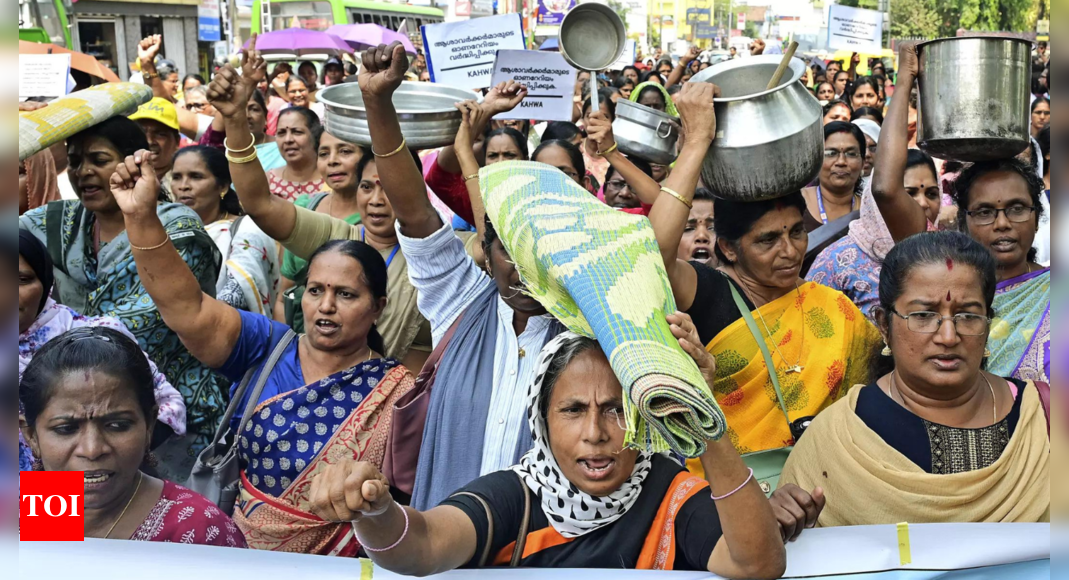For 21 days, the voices of Asha de Kerala workers have echoed the State Secretariat -26,140 women who demand three months of unpaid wages and an increase in their insignificant monthly honorary of RS 7,000. “Each payment occurs after a strike,” said S Mini, vice president of the Kerala Asha Health Workers Association. “Sometimes we wait eight months.”
His fight is not fulfilled with sympathy but with delays and excuses. However, the working class meets them. Auto -rickshaw drivers transport them for free, voluntary groups provide food and water, support born of shared difficulties.
The government says that Asha’s salaries cannot increase, claiming financial difficulties. Although he professes empty coffers, he has found the means for more than double the salaries of the members of the Kerala Public Services Commission. The president’s salary has recently increased from RS 76,450 to RS 224,100 and the members will now receive RS 219,000, compared to RS 70,290. His rental and trip assignments have also shot each other. The contrast is marked. Asha’s workers, a backbone of the Kerala Public Health System, must fight for survival, while bureaucrats see their fortune. In the arithmetic of governance, some lives remain cheaper than others.





